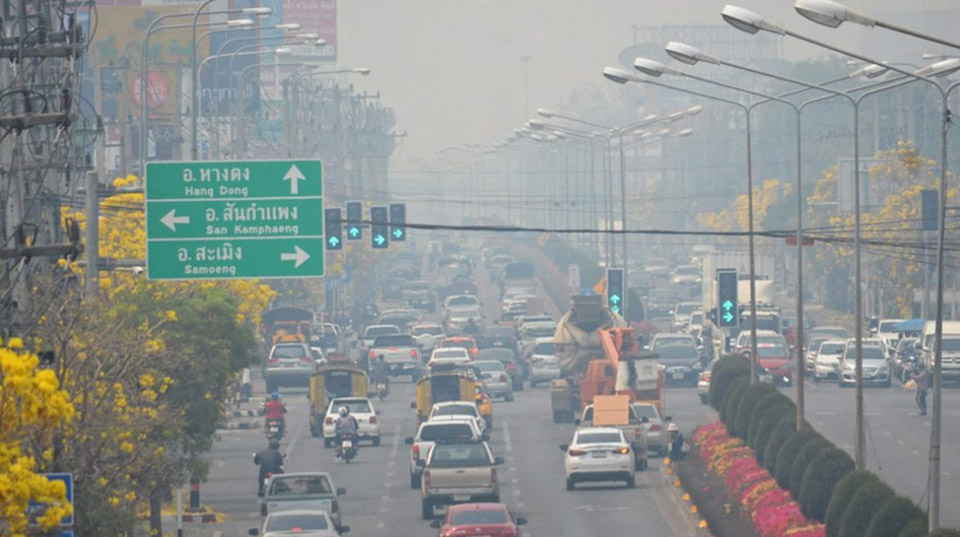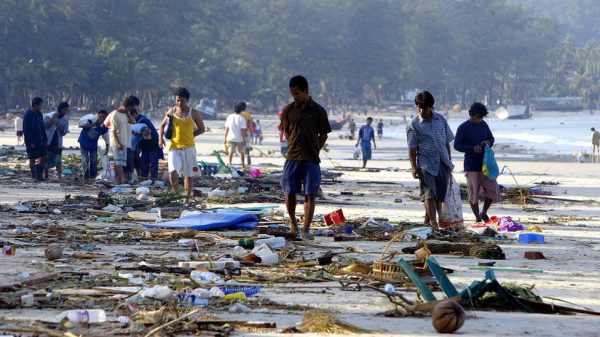After one of the worst “burning seasons” on record, creating massive swathes of poor air quality across mainly northern and central Thailand, and hospitalising thousands with respiratory problems, the Thai government is implementing new standards to measure air quality.
As of June 1, Thailand will be implementing new air quality standards, according to Jatuporn Buruspat, the permanent secretary of natural resources and environment. The new standards are designed to bring the country in line with the World Health Organisation’s regulations.
The lowering of the threshold for poor air was mooted earlier in the year.
The revised PM2.5 standard level has been lowered from 50 microns to 37.5 microns, while the air quality index (AQI) standard has been reduced from 91 to 75.1.
“These changes aim to promote healthier living and better air quality in the country.”
But they won’t do anything unless the underlying causes of the annual burn-off of agricultural wastes, in northern Thailand and across the borders in Laos, Myanmar and Cambodia, are addressed. ASEAN has promised to include the transboundary smoke pollution problem in upcoming summits and caretaker Thai PM Prayut Chan-o-cha has already spoken to the leaders of Myanmar and Laos during teleconferencing calls in April
The AQI will now be divided into five levels, each with a corresponding color code.
The first level is AQI 0-25 (Blue), which indicates that the air quality is excellent and suitable for all outdoor and tourism activities.
AQI 26-50 (Green) is the second level, indicating good air quality for general activities.
The third level is AQI 51-100 (Yellow), which indicates moderate air quality that is safe for healthy people to engage in outdoor activities. However, individuals with health concerns such as breathing difficulties or a cough should reduce outdoor activities.
The fourth level is AQI 101-200 (Orange), which indicates that air quality is beginning to affect people in general. Those experiencing chest pain, headache, fatigue, nausea, or an irregular heartbeat should seek medical attention. It is recommended that individuals should reduce outdoor activities or wear masks when venturing outdoors in this level.
The final level is AQI above 200 (Red), indicating hazardous air quality. At this level, it is advised that people should avoid outdoor activities, wear face masks, and seek medical attention if they feel ill.
The Ministry has requested all state agencies to prepare to address the PM2.5 problem in line with the new standard. Meanwhile, the Department of Pollution Control and the Thai Health Promotion Foundation will be responsible for informing and educating the general public about the changes.









